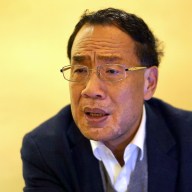
University of St. Thomas professor Stephen D. Brookfield is perhaps the most prolific writer on adult higher education in the U.S. His books use personal experience to flesh out his teaching philosophy. Brookfied’s latest, “Powerful Techniques for Teaching Adults,” takes a look at power dynamics.
“Power is everywhere in the classroom. You can’t avoid it,” he says, from his office in Saint Paul, Minn. “So I thought, instead of writing a book that’s full of these approaches — which is probably what people are expecting — let’s examine how these power dynamics skew the way teaching techniques are experienced by students.”
“Powerful Techniques” touches on a number of concepts Brookfield has written about before: developing critical thinking, facilitating discussion, utilizing the creative arts. But this time the author emphasizes the adjustments he has made to his teaching style due to notions of power and trust.
Though Brookfield is still a believer in student-controlled, self-directed learning, he now introduces the concept with more than a touch of caution.
“If I’m asking people to make decisions about the curriculum, or I’m involving them in setting up the grading system, one of the responses I often get is: ‘You’re playing a game with us and we don’t know what your agenda is,” he explains. “So now I begin by saying, ‘Here are the non-negotiable things about the class; here are the things I want you to decide; and here are places where we can negotiate.’ By being less naive about us all having the same power, I’m able to gain a student’s trust and build something from there.”
















